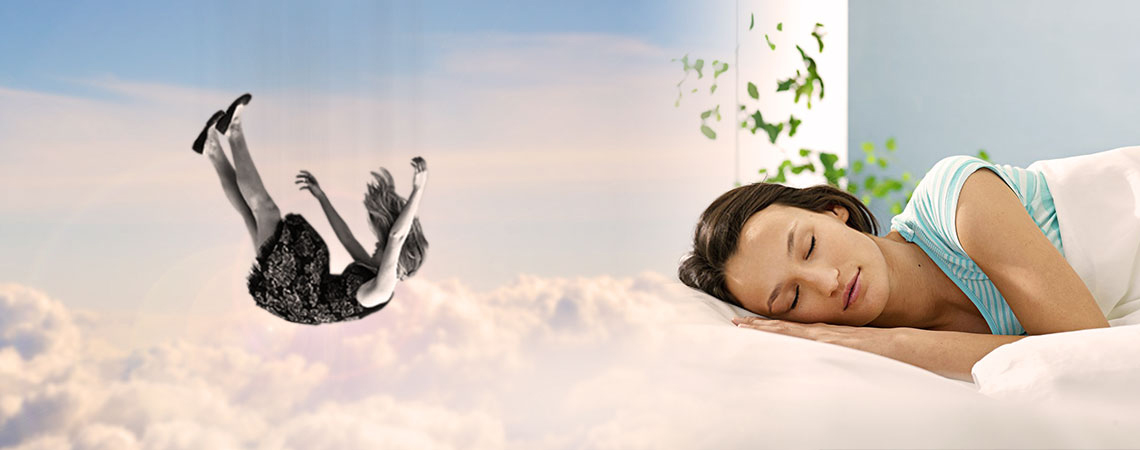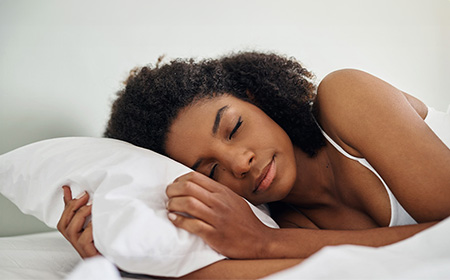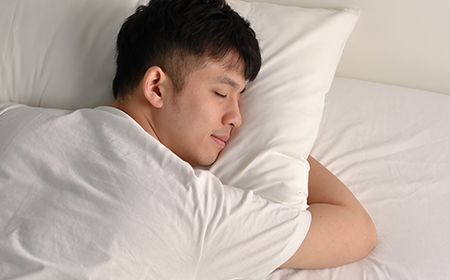We have all been there where we are dreaming, then we instantly wake up and we cannot remember the dream. But more often or not, we have remembered some of our dreams, but we're unsure as to what they mean. Our dreams can mean a various number of things. The meaning of some dreams is very apparent, while other dreams are less simple and harder to interpret. Get answers about what some of your dreams may mean by reading the following.
What do my dreams mean?
Have you ever wondered why we actually dream, and whether we can put our dreams to use? There is no definite, clear-cut opinion about what your dreams may mean, and dreams and their meanings can also vary from person to person. However, there are individual symbols which regularly occur in most people’s dreams. The top five most common dreams are:
- Pursuit (being chased)
- You are taking an exam (unprepared)
- You are falling
- Getting lost
- Naked in public
1. Pursuit or being chased
When you dream about being chased, your dream is often indicating that you have a pent-up or unresolved problem either from the present or the past. It might also be a sign of stress, or a symbol that you are lacking something in your life. Sometimes your dream may pinpoint the actual problem, if you look at who is pursuing you in the dream.
2. You are taking an exam unprepared
An exam dream is often about work or personal pressure in your everyday life. If you dream that you turn up unprepared for an exam, it may often mean that you doubt your professional skills and qualifications in terms of your job. People who work in jobs in which they often have to perform, dream more frequently about taking exams.
3. You are falling
Most of us have had the experience of waking up with a start, when dreaming of falling. Dreams about falling can either be interpreted as a sign of some kind of anxiety or interpreted as something positive. Dreams may indicate fear of rising in estimation or status, or fear of possible risks related to a choice you have just taken. The dream may also be interpreted in a positive way as a sign that you have relinquished control and let go.
4. Getting lost
If you dream that you have gone missing or lost your way, the dream may be an indication that you feel insecure in a particular situation. Dreams such as these may involve the experience of never reaching your destination. This may be an expression of the fact that you are stressed or pressured by work duties, because you may have taken on more than you are able to handle.
5. Being naked in public
The dream of being naked in a public place is often a symbol of lack of self-esteem, or of not feeling comfortable or at home in a particular situation. In this case, nakedness is a symbol of shame or insecurity.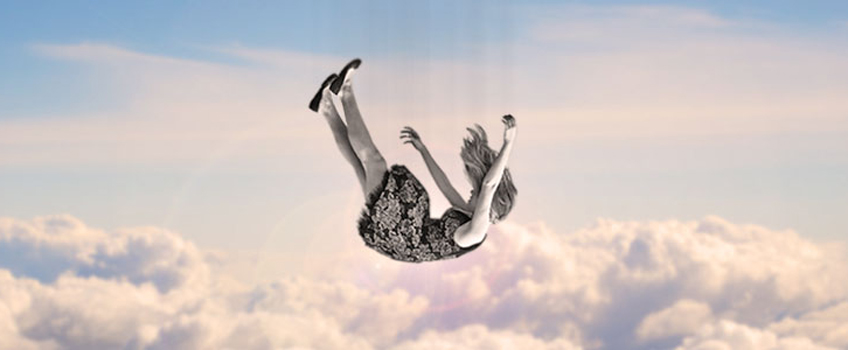
Symbols in our dreams
Many people find that things appear again and again in their dreams. There are archetypal symbols, which often have the same meaning for us.
Water
It is often a symbol of emotions or our subconscious. If the water is clear or unclear, this may be interpreted as a symbol of our calm or unrest.
Means of transport
Whether you dream about sitting in a car, a train, a bus or a plane, this is a symbol of a journey you are either on or about to embark upon. Therefore, it may be a good idea to think about whether you sat in the passenger seat or the back seat – this may indicate whether you have personally chosen the journey you are about to embark upon or whether you just follow the flow.
Death
A dream, in which death occurs, may often seem scary, and is often perceived as something negative. But more frequently it indicates that a major change is happening, or has happened in your life – that something in your life is reaching a conclusion.
Baby
A baby is often a symbol of something new happening in your life. It might be that you are starting a new project at work, or that you are facing development or growth in a specific area.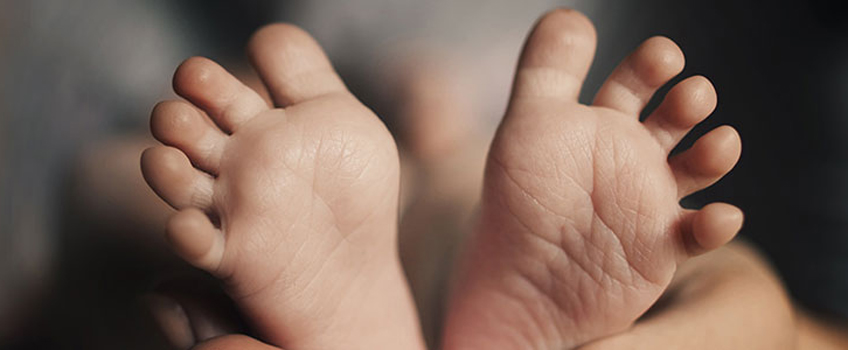
Houses
They are often a symbol of the dreamer’s way of thinking. A very messy house may, for example, mean that there are too many unresolved thoughts in the dreamer’s mind. The different rooms of a house also symbolise different types of thoughts. So a basement may be a symbol of problems that have been neglected for too long, while the bedroom may often be associated with the dreamer’s most personal thoughts and emotions.
When do we dream?
Sleep can be divided into several stages, and a sleep cycle lasts for somewhere between 90 minutes and 110 minutes. The sleep cycle is repeated until we wake up. We often have as many as five or six repeats during the night.
One sleep cycle has four stages, extending from light dozing to sleep, during which we dream – so-called REM sleep. The length of the sleep cycle is the same during the night, whereas the length and character of the four stages change in the course of the night. Deep, comfortable sleep (Stage 2) will often get shorter as the night goes on, whereas REM sleep (Stage 3) will get longer.
Stage 1: Dozing
The first stage is dozing and is a kind of transitional stage. In this stage our bodies begin to relax, and this is when we get sleepy. It's also when dozing that your body may suddenly kick or jerk. This stage lasts 5-10 minutes. If people are woken from dozing, 50% of people will say that they were sleeping, while the remaining 50% will claim to have been awake.
Stage 2: Light sleep
When we arrive at the light sleep of Stage 2, we are no longer in any doubt that we are tired. So brain waves also get slower, and we no longer have any connection to consciousness, when we reach this stage. For adults, this stage fills about 50% of the sleep cycle.
Stage 3: Deep sleep
This is the stage, in which we really sleep heavily and deeply. Brain waves are very slow and the body recuperates. It is during deep sleep that some people sleepwalk and other people talk in their sleep. If you are woken up from deep sleep, you will feel very drowsy and in many cases you will find it difficult to remember where you are. But it is hard to be woken from deep sleep.
Stage 4: REM sleep
While the first three stages of the sleep cycle are known as N-REM (Non Rapid Eye Movement) sleep, the fourth stage is known as REM (Rapid Eye Movement) sleep. Brain waves get quicker, resembling those we experience in the first stage. As the name also indicates, the eyes move.
It's also in this stage that we dream. We awake more easily in the fourth stage, so sometimes we find ourselves waking up in the middle of a dream. This stage usually accounts for 25% of an adult’s sleep.
Sources:
http://psychcentral.com/lib/stages-of-sleep/0002073
http://www.huffingtonpost.com/dreamscloud/meaning-of-dreams_b_4504512.html
http://www.businessinsider.com/what-dreams-mean-2012-5?op=1&IR=T
http://www.babycentre.co.uk/a558727/understanding-your-babys-sleep
http://www.healthychildren.org/English/ages-stages/baby/sleep/Pages/Phases-of-Sleep.aspx
